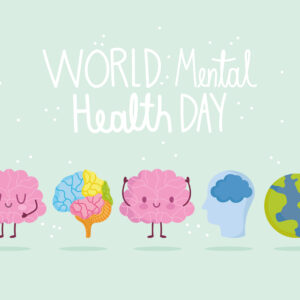It’s quite common for people with substance use disorders to turn to alcohol or drugs to process emotional trauma. However, getting drunk or high is only a temporary solution. You can’t truly heal until you’ve addressed the source of your guilt, shame, anger, hurt, or frustration. You must learn to forgive yourself as well as those who’ve caused you harm.
Forgiving Yourself
When you’re struggling with a substance use disorder, it’s common to feel powerless over your life. Feelings of guilt and shame can come from:
- Ongoing conflict with friends and family over behaviors that are related to your addiction
- Estrangement from loved ones because of your addiction
- Arrests for drunk driving, drug possession, or other addiction-related offenses
- Job loss due to poor performance
- Financial problems due to the amount of money you’re spending on drugs and alcohol
- Health issues related to drinking or drug use
- A loss of personal dreams or goals you’ve put on hold due to your substance abuse
Societal stigma regarding substance use disorders can intensify feelings of guilt and shame. If you were raised to believe that addiction is a character flaw caused by a lack of willpower, it’s difficult to accept that it’s a chronic illness with complex biological and environmental triggers.
How can you move past these feelings and start the process of forgiving yourself? Here are some ideas that can help:
- Get educated. Taking the time to learn about the causes and contributing factors that affect addiction and the recovery process can help you see past stigma as you work towards forgiving yourself for your past mistakes.
- Make amends. Step 9 of 12-Step recovery programs such as Alcoholics Anonymous (AA) and Narcotics Anonymous (NA) encourages people to hold themselves accountable for the harm they’ve caused and work towards making amends with the people they’ve hurt. Whether direct, indirect, or symbolic, making amends can help you forgive yourself by giving you a way to express genuine remorse for your past actions.
- Turn to your faith. When you know that you are loved and fully known by God, it becomes easier to forgive yourself and make the choice to work towards a brighter future.
Forgiving Others
Often, people with substance use disorders use drugs and alcohol to cope with feelings related to childhood trauma, unhealthy romantic relationships, or toxic friendships. However, holding on to resentment and past hurt keeps you from continuing to move forward with your recovery. Forgiving those who’ve hurt you—even when they haven’t fully taken responsibility for their actions—can help you find a sense of inner peace.
Some other steps you can take to work towards forgiving those who’ve hurt you include:
- Try to understand their perspective. In many cases, simple misunderstandings contribute to anger and frustration. For example, you might be upset that a friend seems to be ignoring you without considering that they may be struggling with depression or trying to navigate family issues that have them busier than normal. Sharing how you feel in a non-judgmental way and taking the time to listen can help you avoid jumping to conclusions.
- Resist the urge to retaliate. Being angry with others can trap you in a cycle of bad behavior where you respond to hurt with harsh words or actions that are intended as a form of revenge. Making the conscious decision to stop this endless cycle of resentment and retaliation can help you create meaningful change.
- Think of forgiveness as a form of self-care. It’s a common misconception that we should only forgive people who’ve “earned” our forgiveness. In a perfect world, everyone would own up to their mistakes. However, you don’t need to let someone’s lack of remorse keep you stuck in the past. Choosing to be the bigger person is an act of self-care that can help with feelings of anxiety and depression. Studies have shown that people who are more willing to forgive have stronger immune systems and better cardiovascular health.
- Be the hero of your own story. When you choose to rise above unfortunate circumstances, you are refusing to give into a victim mentality. Rewriting the narrative to describe yourself as a survivor in control of your own destiny can give you the confidence you need to face the challenges of life in recovery.
When you’re struggling to forgive, cognitive behavioral therapy can be helpful. A therapist can help you evaluate how you’re processing your emotions and develop a plan to move forward in a healthier fashion.
You may also find it beneficial to express your emotions through art, music, or creative writing. Having a constructive outlet for your feelings can help you release your hurt and anger without putting the progress you’ve made in your recovery at risk.
We’re Here to Help
At Waypoint Recovery Center, we understand that a lasting recovery requires more than simply abstaining from the use of addictive substances. Our holistic treatment program helps clients learn to live a wellness-focused lifestyle that heals the mind, body, and spirit. Contact us today to learn about the services offered at our South Carolina residential drug and alcohol addiction treatment rehab facility.






